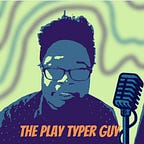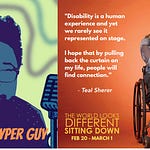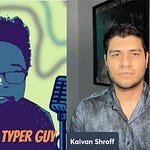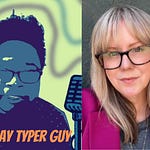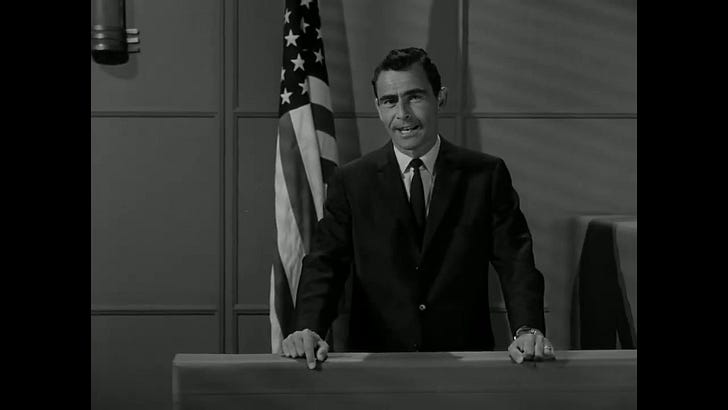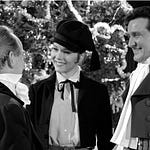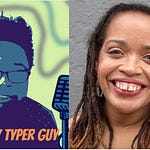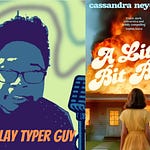We’re kicking off the weekend with my interview with author M.H. Ayinde, whose upcoming debut novel, A Song of Legends Lost, is the first in a three-part fantasy epic! Ayinde shares the process of writing the book and the far more Herculean task of getting it published. We also discuss that recent Doctor Who episode!
Download the podcast version above and/or watch the YouTube video below.
Transcribed excerpts from our conversation:
SER: I’d love to hear a bit about the book itself … what inspired you to write it and then also kind of the journey of getting it published because that was almost a story into itself.
MODUPE AYINDE: It’s a journey of 20 years! So, A Song of Legends Lost is an epic fantasy trilogy. It’s about a world where warriors can summon their ancestors to fight in battle … that’s the sort of short version. The longer version is it’s a multi-point-of-view fantasy set in a world inspired by a number of pre-colonial cultures. It’s a very complicated book with a magic system that’s based on lost technology and it’s broadly speaking about colonialism the insidious side of colonialism … in an epic fantasy genre that always explores empires but often not in a very critical way, in my opinion. [A Song of Legends Lost] comes out in April 2025 in the UK with Orbit and then in America, it’s out in May 2025. Don’t think the announcement’s been made yet about my US publisher, but it’s going to be May in the US.
I’ve always been a fan of science fiction, fantasy and horror from... I don't remember a time when I wasn’t. Epic fantasy was always my first love in terms of literature. It’s the genre that I read a lot as a teenager. I’d also always had writing in my bones. I started writing stories when I was four years old. It never occurred to me not to write stories, but as I got older and started to think about it as a career, it just seemed like something that was completely closed off to me.
Part of that is because I come from a working-class background and you know my focus was you get a job that is reliable and steady and you have money, to make sure that you’ve got home and food so even you know when I was quite young, I never thought of it as a career path that I would be able to pursue on its own. And I kind of feel sad for my younger self that I didn’t do that because I think that I sort of missed out on a lot of years where I could have really given it a shot early on, but I didn't.
And the other thing about my journey is that I really struggled with confidence for a long time. And I think part of that is maybe my personality, but part of it is also when you are a woman of color, especially a black woman of color, writing,
Growing up in the ‘80s and ‘90s as I was and writing books in a genre that you rarely ever see yourself either as a writer or on the page, it’s an uphill struggle so for a long time I sort of felt like I’m writing these words but who is going to read them who is going to publish them and you know that is the sort of thing that it takes a lot of time and work to kind of undo in your own mind.
I think I sent my first query letter when … oh it must have been around 2004 something like that and I sent it to one agent and she sent me a very nice rejection and I was like oh well if this agent thinks it’s rubbish, I’ll just put it in a bin and start a new book and that pattern repeated itself for me for a long time and it sort of took the pandemic, to be honest, to make me think I need to actually get over my lack of confidence … It was in 2020 when I sort of took the decision. Look, I’m going to finish the book that I was working on, which is the book that became A Song Of Legends Lost, and I’m going to actually throw myself behind it.
So I think it was early 2020, early 2021 when I started querying that book. At the same time, I was writing short stories, which is, again, something I had studied, read a lot of but felt that I couldn’t necessarily do and again I regret not having more faith in myself because I love writing short stories. I love the short story community and I’ve had several short stories published so I feel like I should have done that earlier as well.
So I queried during 2021 and I also entered a competition called the Future Worlds Prize, which is a UK competition for science fiction and fantasy writers of color, and I was shortlisted for that and I let the agents who were reading my book know about the shortlisting, and I think that did push me up the pile a little bit faster and in the same week that the prize winner was to be announced I got an offer of representation and then it was like a few days later when I found out I’d won the prize and uh the rest is sort of history. So it was a long journey, but you know I’ve grown a lot as a writer in that time so even though I wish I had tried earlier on I’m happy with where I am now.
Let’s talk Doctor Who
SER: I'd seen a comment from you on social media about the recent Doctor Who episode, “Dot and Bubble,” which I thought was a very good exploration of race, confronting it in a very modern era … The Doctor Who showrunner Russell T. Davies talked about how people would always think of [racism] as something in the past, as opposed to existing in a sort of futuristic world and with our own modern biases.
I’d love to know your thoughts on that episode, especially connected to your own work, because it seemed [to touch upon] colonialism to me. {There was] the colonialist rhetoric that I felt like a lot of viewers, especially white viewers, weren’t necessarily picking up on as sort of the key to racism, particularly white supremacy versus xenophobia.
MODUPE: Yeah, it was interesting, I think, when [the Finetime survivors] were setting off at the end of the episode, they used the phrase “pioneers like our ancestors” and I think early on for the first shot you get the dome where they live. The forest that you see it’s got mist on it to me it looks like a rainforest and I just think … who was on that planet? There were probably people there and there might be people there and someone’s providing their food.
I think it was interesting to me straight away as soon as I saw the screen with all the white faces on I was like … wait a minute are they all white? It looks to me like they are all white. This is a decision, so for those people who were saying, “Oh, it’s a real surprise at the end,” all the way through I was, like, well there’s clearly something going on here because especially with a show like Doctor Who that is so careful in the casting choices and is so thoughtful about the context in which it’s airing episodes, there’s no way that they would accidentally.
I mean, let’s be real, there's never a time in history where you would accidentally recruit an entire cast that is white, even if that time is because of the structural racism that was maybe more impactful than it is now, although it's still hugely impactful.
But, you know, straight away that was to me, okay, that’s what this show is going to be about as soon as you see that and notice that. And it’s quite hard for me to put myself in the shoes of someone who didn’t see all those things all the way through but what I think was really important is you were saying about it being in the past I had a discussion with a friend about this episode and I think they were talking about oh …why were they all so young? It was about, it must’ve been about Gen Z. That’s why they were all so young.
I think it was quite important that they were all so young because it just, for me, rammed home the point that it’s not a bunch of old people with backwards views. It’s actually young people today who,
And one of the most insidious ways in which racism continues is through these tiny microaggressions, so I thought it was quite important to the episode that they were young for that reason.
SER: So the idea of everyone’s all white … people say, well, maybe it’s like space Seattle. Seattle seems to be very white. Portland’s very white. Well, that doesn’t mean you’re racist.
Okay, well there’s a choice and a history to how areas, especially in America, become predominantly white, like Oregon used to have no black people in the dome. It literally [didn’t allow Black people in the state.] So when you are in all-white spaces, that is the result of a choice.That doesn’t necessarily mean that those folks are virulent white supremacists, just maybe passive beneficiaries of a white supremacist system.
And then the argument that, oh, I just assumed they were very wealthy … but then again … if a culture where only white people are the richest and the wealthiest, that is also a choice. That is usually a product of a white-supremacist system … especially when [the Finetime residents are] presented as useless, who’s providing their food who’s helping them?
People seem to think that they’re [only] xenophobic, and I define xenophobia as being like, we’ve never seen a Black person before. But this wasn’t, “Oh, you have different skin color. I want to touch your hair.” [Lindy Pepper-Bean] isn’t shocked to see a Black face. She is offended.
Clearly, Black people do exist. They do exist because these people, their racism is clearly seen as a … reaction to the existence of Black people.
MODUPE:Yeah, absolutely. I mean, the way that she spoke to [the Doctor] throughout the episode made it so clear. The actress [Callie Cooke] I thought did it really well.
Her face would screw up when she was speaking to him. All of her sentences were as dismissive as they could be. It was the sort of expression of disgust that she had a lot of times, but there were so many clues … I think it’s interesting reading what some people were saying, sort of excusing why they didn’t pick up on the clues. They were saying, “Oh, well you know, I thought it could have been just this or I thought it could have been just that,” and those are exactly the things that go through your mind um when you’re trying to decide if something is a racial microaggression. I think it's so ironic that the episode forced you to go through those steps and yet people are doing those things to say, “No, the episode wasn't even about this subject! No, it came out of nowhere.”
Modupe can be found on all the social medias @MHAyinde or at her website www.mhayinde.com.


